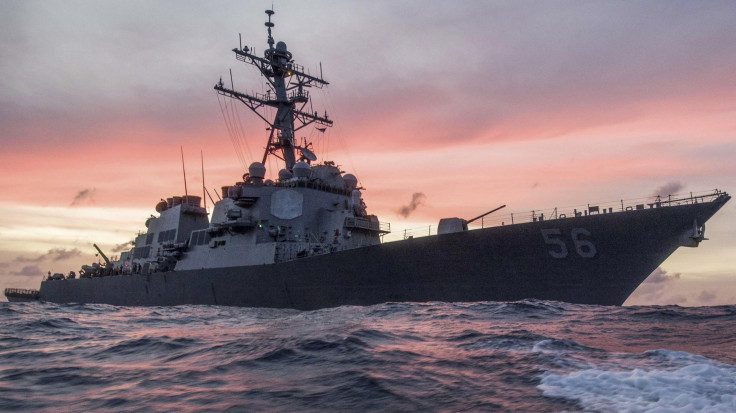Hacking May Have Caused USS John S McCain’s Collision, Say Cyber Experts

Amid reports that the destroyer USS John S. McCain lost steering just before collision with an oil tanker, experts have speculated the possibility of hacking as the cause of the incident.
The US Navy ordered an investigation into its entire 7th Fleet, based in Japan, after the incident in the Strait of Malacca early Monday morning. Navy Admiral John Richardson clarified on Twitter the review would include the possibility of cyber intrusion or sabotage.
“But review will consider all possibilities,” he said.
2 clarify Re: possibility of cyber intrusion or sabotage, no indications right now...but review will consider all possibilities
— USNavyCNO (@USNavyCNO) August 21, 2017
The USS McCain was the fourth vessel of the 7th Fleet based in Japan to have been involved in an incident this year. The search for the ten missing sailors of the destroyer is still ongoing.
On June 17, the USS Fitzgerald was badly damaged in a collision off the coast of Japan and seven sailors drowned. Aside from the USS McCain and the USS Fitzgerald incidents, the Navy cruiser USS Antietam ran aground in Tokyo Bay in February. In May, another cruiser, the USS Lake Champlain, hit a South Korean fishing vessel.
The spate of incidents has given rise to speculations that there might be more than human error involved.
“There’s something more than just human error going on because there would have been a lot of humans to be checks and balances,” Jeff Stutzman, an ex-information warfare specialist in the Navy, who now works at a cyber threat intelligence company, told McClatchyDC.
"When you are going through the Strait of Malacca, you can't tell me that a Navy destroyer doesn't have a full navigation team going with full lookouts on every wing and extra people on radar," he said.
Itay Glick, the founder of cyber security firm Votiro, told news.com.au that the possibility of cyber interference was the first thing that came to his mind when he heard about the incident.
“I don’t believe in coincidence,” Glick told the website.
“Both USS McCain and USS Fitzgerald were part of the 7th Fleet, there is a relationship between these two events and there may be a connection,” he added.
Glick, who worked in the cyber-warfare unit of the Israeli intelligence agency for seven years, said he believed countries like Russia and China might have the capability to launch cyber attacks on warships.
“China has capabilities, maybe they are trying things, it is possible,” he said.
He said there are two main ways that a warship can be interfered with: attacking its GPS and thereby impacting its navigation or a malware attack on its computer network.
“There is already a lot of interest in cyber protection of cars and autonomous vehicles, we can deduce from that, there might be a way to control ships and airplanes,” Glick said.
“Whenever control of the vessel is done by computer, or navigation is done by computer, there is a big risk for a cyber attack on that computer,” he added.
Meanwhile, an unsigned editorial in the Global Times said that McCain’s collision was met with “applause from Chinese netizens.”
It claimed the Chinese reaction "reflects the sentiment of Chinese society toward the activities of the U.S. Navy in the South China Sea."
© Copyright IBTimes 2025. All rights reserved.





















